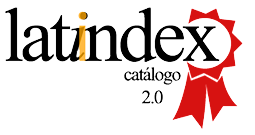The sociocultural activity
a playful look of the games and traditional children’s rounds in elementary schools in Barrio Norte of Colon, Republic of Panama
Keywords:
sociocultural activities, school, plays, playful, children’s roundsAbstract
The objective of the research was to design and validate a proposal for a training program aimed to strengthening the pedagogical and recreational skills of first grade teachers in seven public schools located in the township of Barrio Norte in the city of Colón. The design in a first phase was non-experimental of a diagnostic application with a type of exploratory descriptive study. In it, the population of 22 teachers at the first-grade level was identified and they became a census-type sample. As an instrument, a questionnaire with a Likert-type scale was applied. Among the most relevant results, it was evidenced that 100% of the studied teachers were women; of these, 69.2% had obtained a single degree, while 30.8% reported that they had more than one university degree. The highest degree achieved by these teachers is the master's degree level and only 15.4% report owning it. On the other hand, 30.8% are educational professionals graduated from the Escuela Normal. The teachers perceived that the four subjects in which recreational activities are most applicable in descending order are: Physical education, artistic expressions, Spanish and mathematics. Among the most used chase games were blind chicken and cat and mouse. The results of the investigation in this first phase indicated the diagnosis of the application of the pretest. Therefore, it is determined to propose, design and validate a proposal intervention to the Province Directorate of the Ministry of Education (MEDUCA) for teachers at this level and thus reinforce pedagogical skills through the use of recreational activities in the curricular development of the schools.
Downloads
References
Barceló, C., & Fernández, L. (2019). El valor del juego en la educación infantil: Un enfoque
pedagógico. Revista de Innovación Educativa, 45(2), 120-135.
Gamboa, A. (2007). El valor de jugar en la infancia moderna. Editorial Educativa.
García, M., & López, J. (2021). Lúdica y desarrollo cognitivo: Un enfoque integral para la
educación infantil. Revista Latinoamericana de Educación Infantil, 12(3), 33-48.
González, M., & Pereira, J. (2021). Los juegos tradicionales como herramienta pedagógica
en la educación primaria. Estudios Culturales en Educación, 33(1), 59-72.
Hernández Sampieri, R., Fernández, Collado, C., & Baptista Lucio, P. (2014). Metodología de la
Investigación (6ª. ed.). México D.F.: Mc Graw-Hill.
Jiménez, F. (2015). La lúdica como actitud ante la vida cotidiana en la educación infantil.
Psicología y Educación, 11(2), 89-102.
Molina, R. (2016). Derecho al juego y desarrollo infantil: Análisis desde la Convención
sobre los Derechos del Niño. Revista Latinoamericana de Derechos Humanos, 17(1), 23-37.
Moreno, J., & Peña, D. (2017). El juego como estrategia de aprendizaje según Vygotsky: Un
análisis sociocultural. Psicología y Educación, 8(3), 45-62.
Rodríguez, M., & Garzón, A. (2018). La lúdica como herramienta pedagógica para el
desarrollo emocional en la escuela primaria. Revista de Pedagogía, 29(4), 77-89.
Sánchez, P., Álvarez, R., & López, D. (2018). El papel del juego en el desarrollo de las
funciones ejecutivas en la infancia. Revista de Psicología Infantil, 10(1), 15-27.
Sánchez-Medina, J. A., Iglesias, A., & Delgado, A. (2016). La importancia del juego en el
desarrollo infantil: Implicaciones pedagógicas y sociales. Revista de Educación Infantil,
(2), 65-80.
Stefani, A., & Andrés, M. (2016). El patrimonio de los juegos infantiles y su valor educativo
en la en la globalización. OMEP-UNESCO: Revisión Educativa.
Downloads
Published
How to Cite
Issue
Section
License

This work is licensed under a Creative Commons Attribution-NonCommercial-ShareAlike 4.0 International License.







